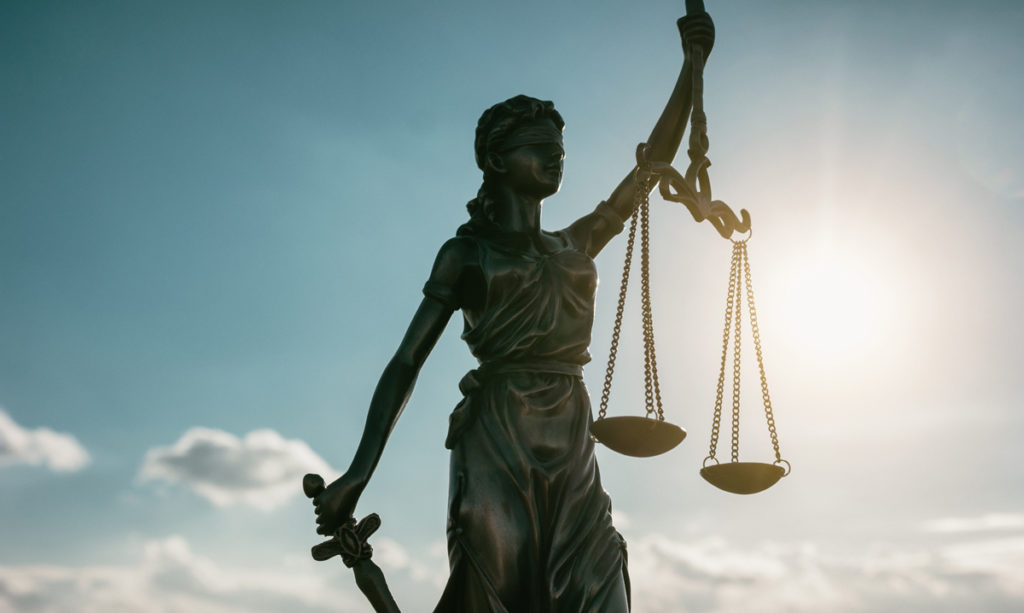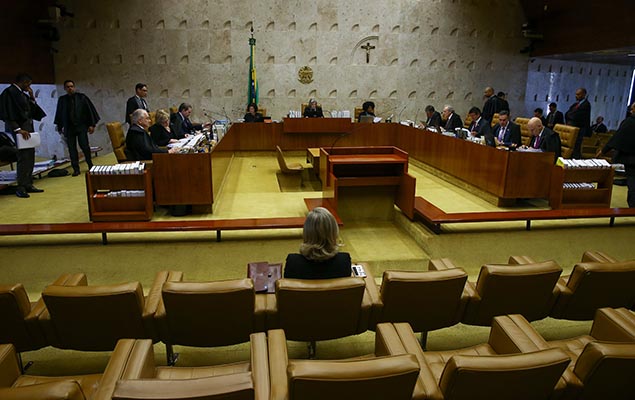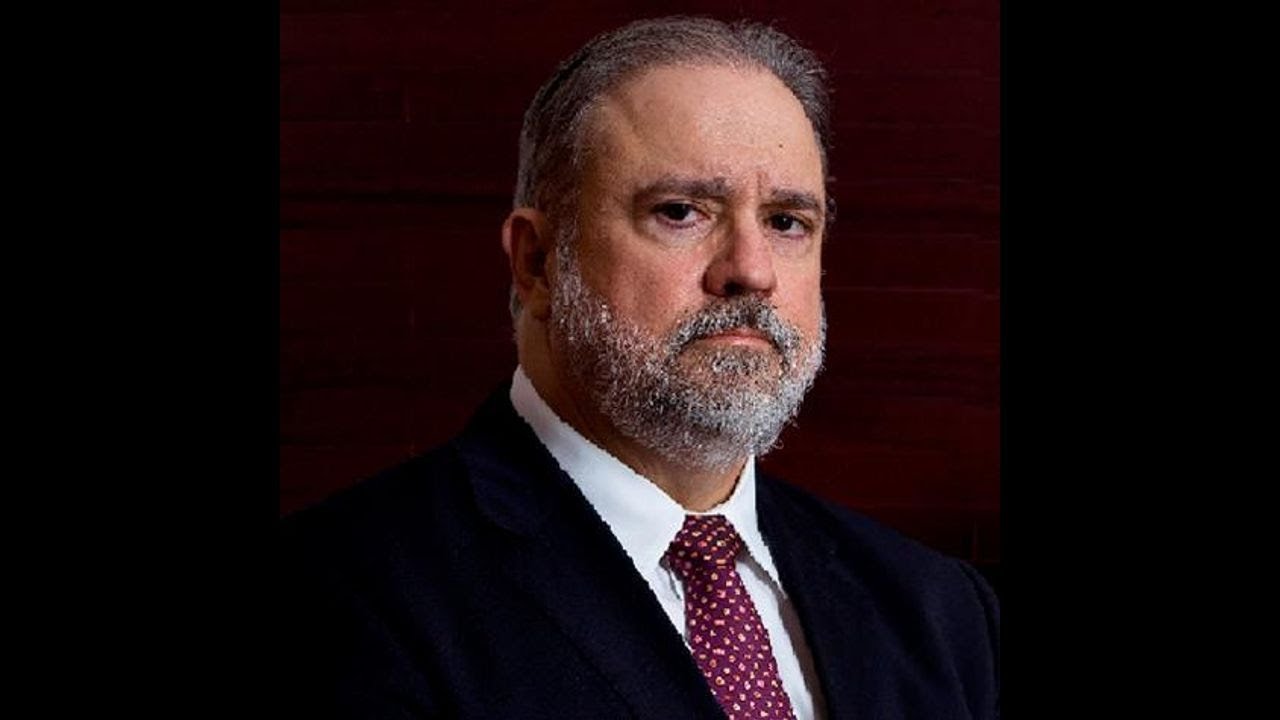RIO DE JANEIRO, BRAZIL – Brazil reaches June with over 31,000 confirmed coronavirus deaths and with governors relaxing isolation measures, although the contagion curve is still rising. Unlike in other countries, when the pandemic will finally subside is not yet discernible.
However, a more tangible horizon is the judicial and political accountability of public agents, such as Ministers, Mayors and Governors, who have done little or nothing to prevent thousands of deaths: in particular, President Jair Bolsonaro.

Proceedings are being brought in the criminal, civil, administrative spheres and even the International Criminal Court has been triggered. Concurrently, the numerous motions for impeachment brought by the opposition against the President are based on the coronavirus.
The accountability front was prompted by the Supreme Court’s (STF) ruling establishing criteria for the enforcement of Provisional Measure 966, which provided that public agents could only be punished criminally for intentional or grossly negligent actions taken while addressing the pandemic.
“However, the justices considered that any measure adopted during the pandemic that is not backed up by science, international bodies, and that is taken regardless of the principle of precaution could be considered gross negligence. Thus, it has become very easy to resort to any of these accountability measures,” explains Eloísa Machado, professor of law at FGV São Paulo.
The Supreme Court has now received over 2,700 lawsuits related to the coronavirus pandemic, including indirect constitutionality suits and writs of mandamus. For now, the cases are related to the prison system, workers’ rights, electoral calendar, public administration, payment of the states’ debts to the federal government, among others.
For Machado “there are aspects of the President’s behavior that could lead to criminal investigations and liability” in all areas of justice, including the launching of an impeachment process. “The path is quite advanced in this regard,” she assures.
In the criminal sphere, she herself has already signed four charges, addressed to the Federal Prosecutor General Augusto Aras, alleging that Bolsonaro has committed the crime of inciting non-compliance of preventive health measures, by disrespecting the isolation measures decreed by state and municipal governments.
The lawsuits were brought by the ‘Coalizão Negra por Direitos’ (Black Coalition for Rights) together with the ‘Coletivo de Advocacia em Direitos Humanos’ (Human Rights Advocacy Group), but were eventually shelved by Aras. “We are now waiting for an appeal lodged in the Superior Council of the Prosecutor’s Office”.
Administrative liability is also an option, which could convict Ministers, Governors and Mayors of administrative improbity, with penalties of ineligibility for office or reimbursement of the public coffers, according to Machado. In the President’s case, administrative improbity is a crime of responsibility and could generate political accountability, through impeachment.
Finally, proceedings could also be initiated in the civil sphere, “where all officials could be held accountable and pay compensation for moral and material damages they caused during the pandemic,” Machado explains.

Lígia Bahia, a PhD in Public Health and professor at UFRJ (Federal University of Rio de Janeiro), helped prepare a note from the Brazilian Institute for Consumer Defense (IDEC) that suggests that lawsuits for moral and collective damages will be brought.
They will be primarily based on a study in the United States showing that the delay in determining social distancing measures has cost at least 36,000 lives. “Scientific and human rights organizations are compiling evidence to prove the consequences of such irresponsibility, seeking to substantiate initiatives capable of demanding the investigation of acts of improbity and reparation for collective harm. Everyone has the right to be born, live and die with dignity. Lost lives have assignable responsibilities”, states the organization’s note.
Machado recalls that the 1988 Constitution “forbids an amnesty law preventing national accountability for these crimes”. However, if none of these bodies work, the Brazilian state could be held liable in international courts, such as the OAS’ Inter-American Commission on Human Rights (IACHR) or in UN committees, and sentenced to pay compensation to victims of government negligence – as occurred after the crimes of the military dictatorship were denounced.
The International Criminal Court (ICC) could convict Bolsonaro if it considers that he committed a crime against humanity in tackling the pandemic. The court has already received two complaints – one from the “Engenheiros pela Democracia” (Engineers for Democracy) group and the other from the “Associação Brasileira de Juristas pela Democracia-” (Brazilian Association of Jurists for Democracy) accusing the President of wanting to commit genocide for his behavior throughout the health crisis.
“There are studies that show an increase in non-compliance with isolation after Bolsonaro’s statements that the measure was of no use. This and other factors are contributing to a potential accountability argument that could lead to the understanding that there was a broader extermination policy,” Machado explains.
How Brazil reacted to the pandemic
On March 11th, the World Health Organization (W.H.O.) declared that the coronavirus was a pandemic – that is, a disease that had already spread to all continents. That day, Brazil reported 52 cases in a few states. The first death would only be confirmed days later, on March 17th.
While countries like Italy and Spain counted their dead, Brazil was in a more comfortable situation, with time to analyze what had been successful in other countries and avoid their mistakes. “We were at least two weeks ahead of the other countries in Europe and the Americas, expanding laboratory capacity, beds, PPEs and ventilators.”
However, as the poet and fellow countryman Carlos Drummond de Andrade said, ‘in the middle of the road there was a rock, there was a rock in the middle of the road,” wrote Wanderson de Oliveira, national secretary of Health Surveillance until May 25th, in his resignation letter.
The “rock in the middle of the road” was Jair Bolsonaro. The current President is perceived by governors, legislators, doctors, scientists and civil society organizations, both in and out of Brazil, as primarily responsible for the deaths that could have been prevented during almost three months of pandemic.
Over those weeks, Bolsonaro rated the disease as a minor “flu”, encouraged people to disrespect social distancing measures and take to the streets, disregarded the number of deaths, clashed with governors, encouraged demonstrations against social isolation measures, boycotted the work of the last two Ministers of Health, promoted chloroquine as a cure for the novel virus despite scant scientific evidence, walked around on the streets and caused crowds…

In short, the discourse has always been that the economy could not stop. Among the main victims of the coronavirus, Brazil is now the only country where the contagion curve is still growing, as stated by W.H.O. and acknowledged by the Ministry of Health.
In taking stock of the fight against the coronavirus in the country, Lígia Bahia explains that Brazil has experienced three cycles, “each one worse than the other”. The first occurred until the dismissal of Minister Luiz Henrique Mandetta on April 16th. “The Brazilian government’s reaction has always been ambiguous, because first we saw the President saying it was a minor ‘flu’ while the Ministry of Health was in preparation.
Then, at that stage, governors and health secretariats were the main players along with the Ministry of Health. “There was such opposition from the Health area with the hard core of the Presidency,” she argues. The second stage occurred during the month in which Nelson Teich was in charge of Health. “There was then an alignment with the Presidency, but it didn’t last long, while governors and Health Secretariats tried to react”, she adds.
The third cycle began with Teich’s dismissal on May 15th and the temporary appointment of General Eduardo Pazuello in his place, definitively establishing the portfolio’s alignment with Bolsonaro. The main result was the final “obliteration” of the technical sectors of Health, explains the doctor.
“And now the governors can no longer react… As much as Brazil is a federation, it’s highly centralized. There is a heavy dependence on federal government resources, while the Legislative and Judiciary branches are focused on an unprecedented political crisis. So these governors are no longer resisting the pressures of the economic area and are relaxing isolation,” explains Bahia. “Today we see a country that is going to reopen in the middle of a growing curve of cases. It’s going to be crazy”.
Potential judicial and political accountability
The medical and scientific community is unanimous in stating that the main victims of Covid-19 are the elderly and the poor, as the data have confirmed. On one occasion when asked about the deaths, Bolsonaro replied: “So what? I’m sorry. What do you want me to do about it?”
“Bolsonaro realizes that people are going to die anyway and that it’s okay if a few more die. It is ignorance in its most brutal form,” says Bahía. Izabel Marcílio, an infectologist at the São Paulo Clínicas Hospital, a paradigm in the treatment of Covid-19, agrees. “I do not see an extermination policy, but that is certainly what it entails. To say that the Government is denialist is to oversimplify. It is an understatement given the irresponsibility and absurdity we are experiencing”.
In addition to Bolsonaro’s neglect, experts point out that other authorities have also made mistakes throughout the pandemic – and, eventually, may also be held accountable for them. “Minister Mandetta was acting as a doctor and worried about structuring the health system, but even he stopped doing a lot,” explains epidemiologist Izabel Marcílio. “We were protected by chance because the virus started in China, then migrated to Europe and the United States…The international emergency statement came in January. We had plenty of time to prepare, between one and two months”.
She recalls that the Family Health program is widespread in the territories. These health professionals, she argues, could have been better used in their regions to target people with comorbidities and guide the population on what to do. “In January, we could have trained these people, provided PPEs, bought tests, taught the population how to isolate themselves…”, she explains.
In contrast, Lígia Bahía points out that, at a time when they had more political strength, governors who were leading players in the health crisis – such as João Doria in São Paulo, Wilson Witzel in Rio de Janeiro and Camilo Santana in Ceará – no longer enforced the so-called lockdown, hardening the isolation measures. She also points out that not all mayors and governors opposed Bolsonaro and many of them were aligned with the President during the health crisis.
As an example of the authorities’ neglect, Marcílio recalls that the Doria government could have increased social isolation rates by further restricting professional activities. According to the quarantine decree, over 60 percent of the workforce is considered “essential” – among them the building industry, one of the sectors that employs the most people.
The doctor also mentions as an example the changes in traffic and the vehicle rotation that were implemented in the city of São Paulo by Bruno Covas’ administration to increase social distancing. “They made three attempts in a matter of weeks, obviously there was no one behind them thinking,” she says. “If central power is terrible, state power could have done better. And if it’s not working either, the city could have done differently”.
In her opinion, Brazil’s main mistake in facing the pandemic lies in communication. “The major difference in countries like Germany, France and New Zealand is that doubts and fears were welcomed, and they knew how to guide people in every way. In Brazil, at no time was there effective communication between the authorities and the population”.
Source: El País

